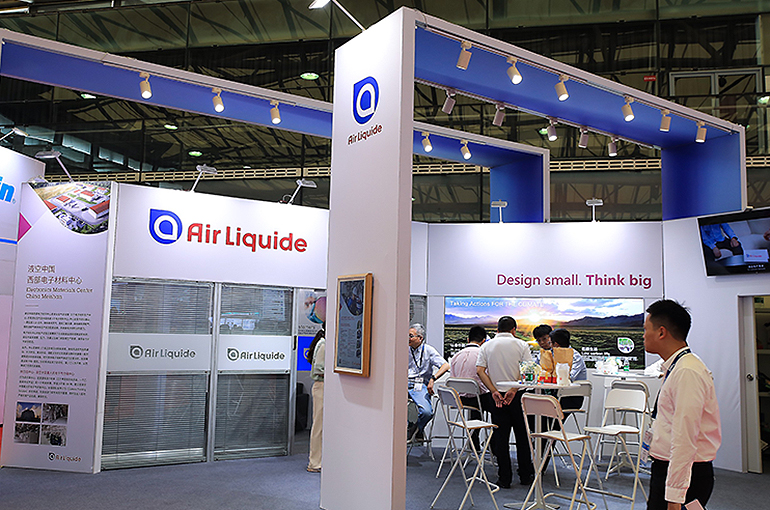 Time Is Ripe to Enter China’s Hydrogen Market, Air Liquide CEO Says
Time Is Ripe to Enter China’s Hydrogen Market, Air Liquide CEO Says(Yicai Global) July 17 -- Now is the best time to develop China’s hydrogen energy market, the chief executive officer of Air Liquide France, one of the world's largest suppliers of industrial and medical gases, recently told Yicai Global.
Developments in China’s economy, such as the green transformation of the manufacturing industry, the many application scenarios for hydrogen energy and the explosive development of the electronics industry, are very well aligned with the strategy of Air Liquide, said François Jackow. You will see more and more of us in China.
China has the most hydrogen-powered vehicles on the roads than any other country. And Shanghai in particular is leading the way in building hydrogen energy infrastructure, opening up the possibility of greater use of hydrogen energy in the mobility sector, he said.
“What we want to do is to find the right location where there's enough infrastructure density,” Jackow said. “We will contribute by bringing low-carbon hydrogen, and then will work with partners to build the infrastructure like filling stations and on transportation.”
And Paris-based Air Liquide has been teaming up with oil major Sinopec and other Chinese partners in Shanghai and Tianjin on hydrogen cooperation projects in recent years.
“In Shanghai and Tianjin, for example, we don't want to work alone and we are making partnerships, especially for filling stations, as that is not our core business and we need partners to distribute the hydrogen. You can bring a lot of value, but for refueling stations, it's much better to worth with someone else,” he added.
“Hydrogen is a better solution for heavy-duty transportation. The challenge, of course, is infrastructure. We need more filling stations. That's why we need to focus on specific areas where the Infrastructure density can be improved. And we need to have more trucks available and more buses.
“And of course, there will be economies of scale. The more trucks there are, the cost of running each truck will go down. There is already support and incentives from local governments to promote this kind of mobility. Of course, we would like to see more support to accelerate this transition,” he added.
Air Liquide has been paying close attention to China’s industrial trends and policies for many years and has deployed liquid hydrogen technologies together with Chinese energy businesses. In March last year, Air Liquide set up a joint venture to build a hydrogen refuelling hub in the Shanghai Chemical Industry Park. The first phase, costing CNY180 million (USD25.1 million), opened in August last year with a daily refueling capacity of 24 tons.
And in April, it launched a hydrogen energy supply base costing over CNY1 billion (USD140 million) in the Lingang area of the Tianjin Port Free Trade Zone. The first phase is expected to be put into operation in the second half of 2024.
“There's no question that China is a very important market for us. We have invested a lot in China over the past 30 years, and we will continue to do so. We want to support the development of the Chinese economy, which is well aligned with what we want to bring to society and to our customers,” Jackow said.
Expanding Footprint
Other hydrogen energy companies are also expanding their footprint in China. French rival Plastic Omnium is linking arms with Shenergy in Shanghai to provide high-pressure hydrogen storage systems for the Chinese commercial vehicle market, according the memorandum of understanding signed by the two parties in January.
Hydrogen will account for at least 10 percent of China’s end-user energy system by 2050, and hydrogen demand will be close to 60 million tons, the China Hydrogen Alliance said.
France is China’s third largest trading partner in the EU. In the first five months, France’s actual investment in China surged more than five-fold from a year earlier, despite only a slight increase of 0.1 percent in the country's actual use of foreign capital, according to data from the Ministry of Commerce.
Editor: Kim Taylor